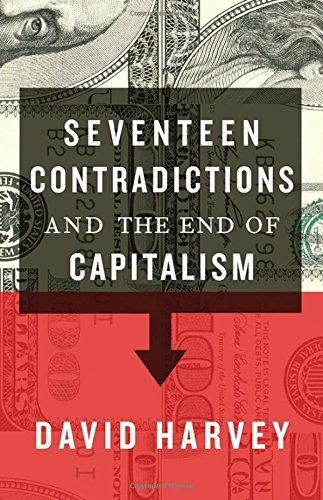Book : Seventeen Contradictions And The End Of Capitalism -
Pagá en cuotas
Llega gratis el jueves 23 de mayo
Solo en CABA y zonas de GBA
Comprando dentro de la próxima 1 h 18 min
Retirá gratis entre el 23 y el 28/mayo en correo y otros puntos
Ver en el mapaDisponible 15 días después de tu compra
MercadoLíder | +10mil ventas
MercadoLíder Platinum
+10mil
Ventas concretadas
Brinda buena atención



Descripción
- ANTES DE COMPRAR PREGUNTE FECHA DE ENTREGA.
- ENVIAMOS POR MERCADOENVIOS
- PUEDE RETIRAR POR AHORA SOLO POR QUILMES, MICROCENTRO ESTA CERRADO, POR ESO...
- EN CABA (CAPITAL FEDERAL) ENVIAMOS SIN CARGO ESTE PRODUCTO.
- FORMA DE PAGO : MERCADOPAGO
- HACEMOS FACTURA A.
- ELBAZARDIGITAL VENDEDOR PLATINUM
- TODOS NUESTROS PRODUCTOS EN:
https://eshops.mercadolibre.com.ar/elbazardigital
-X-X-X-
- SOMOS IMPORTADORES DIRECTOS, ESTE PRODUCTO SE COMPRA Y SE IMPORTA DESDE ESTADOS UNIDOS, ESTO IMPLICA QUE USTED ESTA COMPRANDO EL MISMO PRODUCTO QUE COMPRARÍA UN CLIENTE DE ESE PAÍS.
- ANTES DE REALIZAR UNA CONSULTA, VISUALICE TODAS LAS IMAGENES DEL PRODUCTO.
Descripción provista por la editorial :
What I am seeking here is a better understanding of the contradictions of capital, not of capitalism. I want to know how the economic engine of capitalism works the way it does, and why it might stutter and stall and sometimes appear to be on the verge of collapse. I also want to show whythis economic engine should be replaced, and with what. --from the IntroductionTo modern Western society, capitalism is the air we breathe, and most people rarely think to question it, for good or for ill. But knowing what makes capitalism work--and what makes it fail--is crucial to understanding its long-term health, and the vast implications for the global economy that goalong with it.In Seventeen Contradictions and the End of Capitalism, the eminent scholar David Harvey, author of A Brief History of Neoliberalism, examines the internal contradictions within the flow of capital that have precipitated recent crises. He contends that while the contradictions have made capitalismflexible and resilient, they also contain the seeds of systemic catastrophe. Many of the contradictions are manageable, but some are fatal: the stress on endless compound growth, the necessity to exploit nature to its limits, and tendency toward universal alienation. Capitalism has always managed toextend the outer limits through spatial fixes, expanding the geography of the system to cover nations and people formerly outside of its range. Whether it can continue to expand is an open question, but Harvey thinks it unlikely in the medium term future: the limits cannot extend much further, andthe recent financial crisis is a harbinger of this. David Harvey has long been recognized as one of the worlds most acute critical analysts of the global capitalist system and the injustices that flow from it. In this book, he returns to the foundations of all of his work, dissecting and interrogating the fundamental illogic of our economic system,as well as giving us a look at how human societies are likely to evolve in a post-capitalist world. Review The book is a refreshing attempt to innovate Marxist theory, to move beyond the tired dogmatisms and deadend scholasticism that have plagued it for too long and construct a richer, more open theoretical approach...Likewise, it is an important book for activists seeking to craft a politics that,while moving beyond the limitations of spontaneity and structurelessness, can finally transcend the old question of lreform or revolution, and test the possibilities for reform and revolution through the practical reconstitution of a socialist political alternative for the 21st century left. --Stephen Maher, lScience & Society About the Author David Harvey is Distinguished Professor of Anthropology at the Graduate Center of the City University of New York. He is among the top twenty most cited authors in the humanities and is the worlds most cited academic geographer. His books include The Limits to Capital, Social Justice and the City,and The Condition of Postmodernity, among many others.
-o-o-o-
Garantía del vendedor: 90 días
Preguntas y respuestas
¿Qué querés saber?
Preguntale al vendedor
Nadie hizo preguntas todavía. ¡Hacé la primera!

